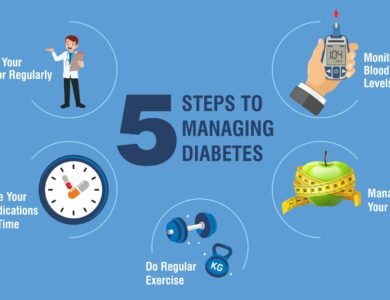What are Best and Worst Foods for Heart Failure

Best and Worst Foods for Heart Failure
Healthy Fats
Incorporating healthy fats into your diet, such as those found in avocados, nuts, seeds, and olive oil, can provide essential nutrients without contributing to heart issues. These fats can help lower bad cholesterol levels and reduce the risk of heart disease.
Lean Protein Sources
Opting for lean protein sources like skinless poultry, fish, tofu, and legumes can provide the necessary protein for muscle maintenance and repair without excess saturated fat and cholesterol. These proteins are vital for maintaining overall health, especially for individuals with heart failure.
Fresh Fruits and Vegetables

Fresh fruits and vegetables are rich in vitamins, minerals, and antioxidants, which can help protect the heart and improve overall health. Incorporating a variety of colorful produce into your meals ensures a diverse array of nutrients that support heart function.
Related: Surprising Things that would be inflicting you Heart issues
Whole Grains
Whole grains like brown rice, quinoa, oats, and whole wheat bread are excellent sources of fiber and nutrients. They can help regulate blood sugar levels, promote digestive health, and lower the risk of heart disease when consumed as part of a balanced diet.
Low-Fat Dairy Products
Choosing low-fat or fat-free dairy products like milk, yogurt, and cheese can provide essential nutrients like calcium and vitamin D without the added saturated fat. These dairy options can contribute to overall heart health when consumed in moderation.
Worst Foods for Heart Failure

High-Sodium Foods
High-sodium foods like processed meats, canned soups, salty snacks, and fast food should be limited or avoided by individuals with heart failure. Excess sodium can lead to fluid retention and exacerbate heart-related symptoms, making it essential to monitor sodium intake closely.
Processed and Fried Foods
Processed and fried foods are often high in unhealthy fats, sodium, and calories, making them detrimental to heart health. These foods can contribute to weight gain, high cholesterol levels, and increased risk of heart disease, making them best avoided or consumed sparingly.
Sugary Beverages and Snacks
Sugary beverages like soda, energy drinks, and sweetened teas can contribute to weight gain and increase the risk of heart disease when consumed in excess. Similarly, sugary snacks like candies, cookies, and pastries should be limited due to their high sugar and calorie content.
Foods High in Saturated and Trans Fats
Foods high in saturated and trans fats, such as fatty cuts of meat, butter, margarine, and processed snacks, can raise bad cholesterol levels and increase the risk of heart disease. These fats should be replaced with healthier alternatives like olive oil, avocado, and nuts.
Related: Foods To Help You Weight Loss: A Comprehensive Guide
Recommended Dietary Guidelines for Heart Failure Patients
- Limit Sodium Intake
- Control Fluid Intake
- Monitor Potassium Levels
- Maintain a Healthy Weight
- Consideration of Specialized Diets
- Importance of Hydration
- Balancing Fluid Intake
- Choosing the Right Beverages
Incorporating Exercise into a Heart-Healthy Lifestyle
- Benefits of Exercise for Heart Failure Patients
- Types of Exercise Recommended
Cooking Tips for Heart-Healthy Meals
- Emphasizing Flavor without Sacrificing Health
- Methods for Reducing Sodium and Fat
Incorporating Exercise into a Heart-Healthy Lifestyle
Benefits of Exercise for Heart Failure Patients
Regular exercise offers numerous benefits for individuals with heart failure, including:
- Improved heart function: Exercise helps strengthen the heart muscle, making it more efficient at pumping blood throughout the body.
- Increased stamina and endurance: Physical activity can improve cardiovascular fitness, allowing individuals to perform daily tasks with less fatigue.
- Weight management: Exercise can help individuals maintain a healthy weight or lose excess pounds, reducing the strain on the heart.
- Better mood and mental health: Physical activity releases endorphins, which can boost mood and reduce stress, anxiety, and depression.
- Lower risk of complications: Engaging in regular exercise can help reduce the risk of complications associated with heart failure, such as blood clots and fluid buildup in the lungs.
Related: 10 Everyday Foods to Support Blood Sugar Levels: Your Blood Sugar Guide
Types of Exercise Recommended
When incorporating exercise into a heart-healthy lifestyle, it’s essential to choose activities that are safe and appropriate for your condition. Here are some types of exercise recommended for individuals with heart failure:
- Aerobic exercise: Activities that increase your heart rate and breathing rate, such as walking, cycling, swimming, and dancing, can improve cardiovascular fitness and endurance.
- Strength training: Incorporating resistance exercises using weights, resistance bands, or body weight can help build muscle strength and improve overall body composition.
- Flexibility and balance exercises: Stretching exercises and yoga can improve flexibility, balance, and coordination, reducing the risk of falls and injuries.
- Interval training: Alternating between periods of high-intensity exercise and rest can improve cardiovascular fitness and burn more calories in a shorter amount of time.
- Low-impact activities: For individuals with joint pain or mobility issues, low-impact exercises like water aerobics or tai chi can provide a gentle yet effective workout.
Conclusions:
In conclusion, adopting a heart-healthy diet and lifestyle is essential for individuals living with heart failure. By focusing on consuming nutrient-dense foods like lean proteins, fruits, vegetables, and whole grains while avoiding high-sodium, processed, and sugary foods, individuals can support their heart health and overall well-being. Incorporating regular exercise and staying hydrated are also crucial aspects of managing heart failure and improving quality of life.
In conclusion, exercise is an essential component of a heart-healthy lifestyle for individuals living with heart failure. By incorporating regular physical activity into your routine and following guidelines tailored to your specific needs, you can improve heart function, increase stamina, and enhance overall well-being. Remember to consult with your healthcare provider before starting any exercise program and listen to your body’s signals to ensure a safe and effective workout regimen.
Unique FAQs
- Can I still enjoy occasional treats while following a heart-healthy diet?While it’s okay to indulge in treats occasionally, moderation is key. Opt for smaller portions and choose healthier alternatives whenever possible to minimize the impact on your heart health.
- Are there any specific diets recommended for individuals with heart failure?While there isn’t a one-size-fits-all diet for heart failure, some individuals may benefit from following a heart-healthy eating plan like the DASH diet or Mediterranean diet. It’s essential to work with a healthcare provider or dietitian to determine the best dietary approach for your specific needs.
- How can I reduce my sodium intake without sacrificing flavor?Experiment with herbs, spices, and citrus juices to add flavor to your meals without relying on salt. Additionally, choosing fresh or minimally processed foods and reading labels carefully can help you identify hidden sources of sodium in your diet.
- What role does hydration play in managing heart failure?Proper hydration is essential for individuals with heart failure to maintain fluid balance and support overall health. Aim to drink plenty of water throughout the day and limit your intake of caffeinated and alcoholic beverages, which can contribute to dehydration.
- Is it necessary to exercise if I have heart failure?While it’s essential to consult with your healthcare provider before starting any exercise program, regular physical activity can have numerous benefits for individuals with heart failure. Exercise can help improve cardiovascular fitness, strength, and endurance, leading to better overall health and quality of life.



